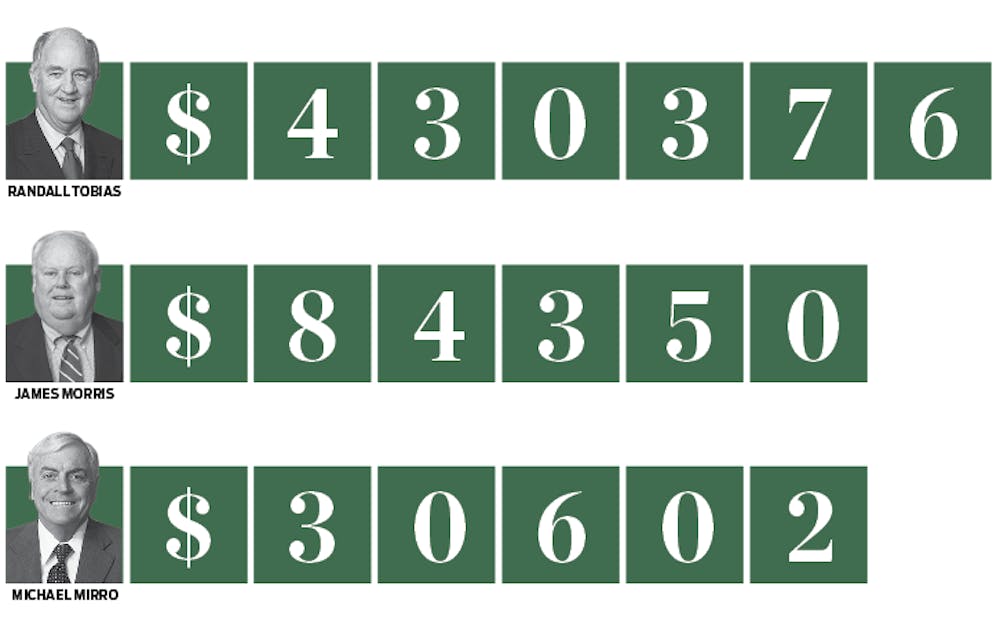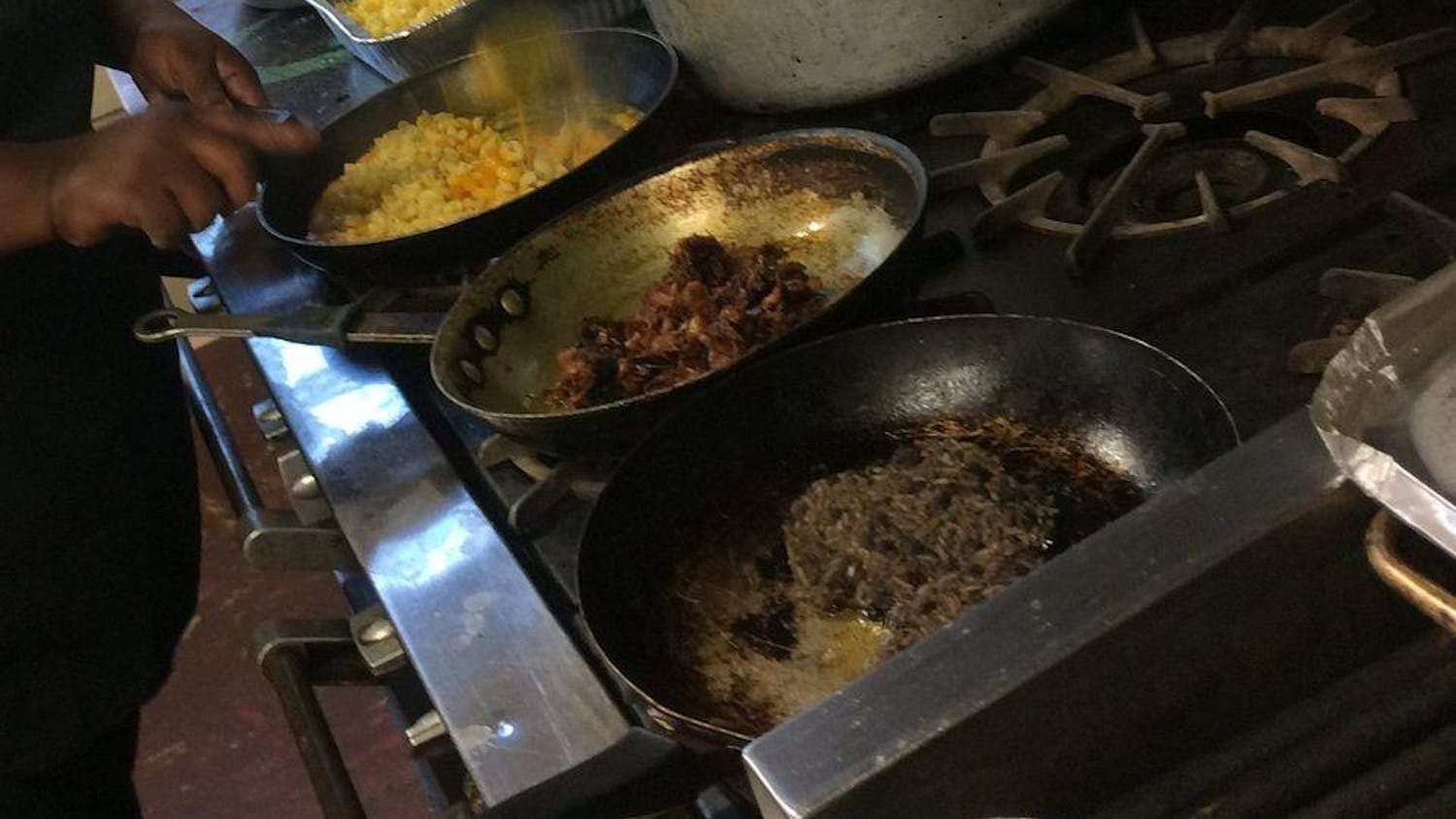Since Gov. Mike Pence took office in 2013, he has appointed five IU Board of Trustees members. Since 2010, four of these trustees have donated a combined amount of more than $72,000 to Pence’s campaigns. More than 75 percent of this total donated was given by Chairman of the Board Randall Tobias, who has donated $55,624.
Michael Mirro, James Morris and Andrew Mohr join Tobias in donating to Pence, who is up for re-election this year.
With Indiana’s primary election on May 3, many people have been making political contributions to different local, state or national candidates. The Board of Trustees is no exception.
The trustees have been donating to their favorite candidates for years. In total, their individual donations since 2000 add up to $570,466, which have gone mostly toward the Republican Party and its candidates, according to followthemoney.org.
In 2013, Pence appointed Tobias and Morris to the board. In 2012 Tobias gave a total of $35,360 and Morris gave a total of $5,000 to Pence.
Board of Trustees members can be either appointed by the governor or elected by IU alumni. Five of the current trustees are appointed by the governor, and three are elected by alumni. The ninth trustee is a student who is also appointed by the governor, but she has not made any donations.
In 2004 and 2008, six board members donated to Mitch Daniels’ campaign for governor. The top contributors were Tobias, Mirro, Morris and Mohr. In total, Tobias donated $163,019, Morris donated $23,500, Mirro donated $5,250, and Mohr donated $2,500, according to followthemoney.org.
Former governor Frank O’Bannon appointed Patrick Shoulders to the board in 2002. In 2000, Shoulders donated $1,200 to O’Bannon’s campaign.
To Tobias, Daniels was one of Indiana’s most effective governors.
“He was fiscally conservative and at the same time believed social issues had no place in state government,” Tobias said.
In addition to governor races, many trustees have donated to other candidates, including those running for House or Senate, attorney general or the school board.
Fiscally conservative but socially more liberal, Tobias said he supports like-minded candidates.
Although he’s been a lifelong Republican, Tobias said he has been a long-time supporter of former Democratic congressman Lee Hamilton.
“Party labels often lead to assumed stereotypes that may not be accurate,” Tobias said.
Of the eight non-student board members, six have donated to mostly Republican candidates, and one, Patrick Shoulders, has donated to mostly Democratic candidates. Trustee Derica Rice’s donations have been split between the two parties, according to followthemoney.org and opensecrets.org.
Followthemoney.org is run by the National Institute on Money in State Politics, which uses data from disclosure agencies with which candidates must file their campaign finance reports, according to the website. Opensecrets.org, a site run by the Center for Responsive Politics, uses its data to track federal campaign contributions and lobbying.
Calder Burgam, a researcher at the National Institute on Money in State Politics, said all the institute’s data comes from government agencies charged with collecting and making campaign finance data available. The Institute uses more than 50 state agencies and the Federal Election Commission to gather all its data.
Burgam said the Supreme Court has continued to reaffirm the importance of strong disclosure when it comes to campaign finance.
“For that disclosure to be effective, it must be comprehensive and accessible,” Burgam said.
Having a single database allows the public to connect the dots between political spending and policy influence, Burgam said. This creates better-informed citizens who can engage in democracy, he said.
“Disclosure of campaign finances is essential to ensuring an accountable, responsive government,” Burgam said.
Morris said the reasons for his campaign contributions are private and in no way reflect his role at the University. Tobias said it is the responsibility of every citizen to participate in the democratic process.
“If we don’t we will live with the consequences of the decisions of those who do, as we may be observing in this election cycle,” Tobias said.






